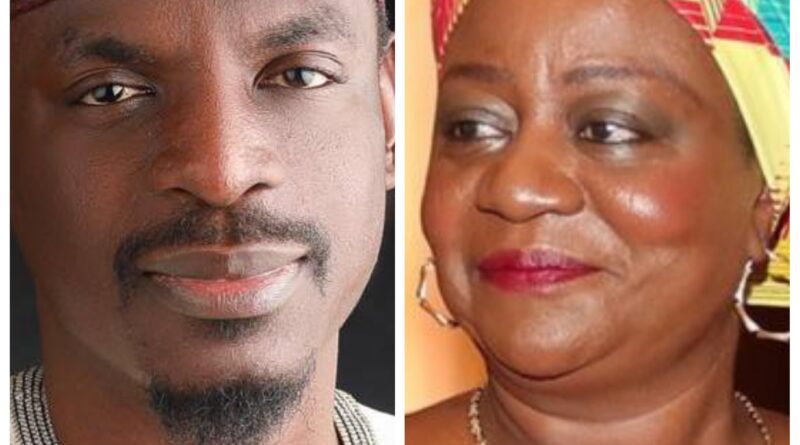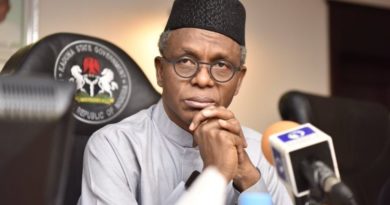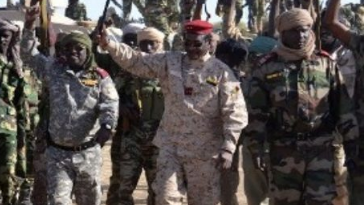Presidency Source – Buhari’s Social Media Aides, Ahmad, Onochie, Others Risk Sacking After Twitter Ban.
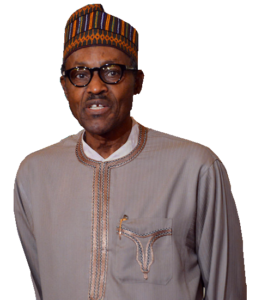
Some of President Muhammadu Buhari’s social media aides may be sacked according to Presidential sources they are now jobless following last Friday’s ban on social micro-blogging giant, Twitter, in the country.
It was learnt that some of the top shots in the Presidency, who have an axe to grind with the overzealous social media aides, have been silently pushing for their sack letter since Twitter was banned and the aides are deemed to be idle at the moment. The aides that may go include Bashir Ahmad, with twitter handle @bashirahmaad, Personal Assistant to the President on Digital and New Media, and Lauretta Onochie, Personal Assistant to the President on Social Media. Others are Tolu Ogunlesi, Special Assistant on Digital and New Media to the President. “Some of them maybe asked to go. Although reports has it that they are seriously lobbying to keep their jobs. Some top presidency chiefs believe these guys just sit on Twitter and do nothing other than to send out controversial tweets which ridicules the president’s image the more. When you remove Twitter and Instagram from them, some of them are idle and useless,” a top source stated. “Since last Friday, some of the social media aides have been trying to change their portfolios and add new responsibilities, so that they can remain relevant. They are presently idle.”
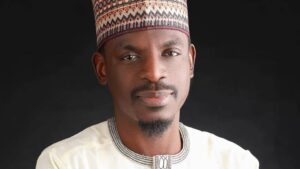
Last Friday, the Minister of Information and Culture, Lai Mohammed, announced the suspension of Twitter in a statement signed by his Special Assistant, Segun Adeyemi, citing the “persistent use of the platform for activities that are capable of undermining Nigeria’s corporate existence”. The Minister said the Federal Government had also directed the National Broadcasting Commission (NBC) to immediately commence the process of licensing all OTT and social media operations in Nigeria. The development comes after Twitter deleted President Muhammadu Buhari’s tweet where he threatened to treat Nigerians in the South-East “misbehaving” in “the language they understand”.
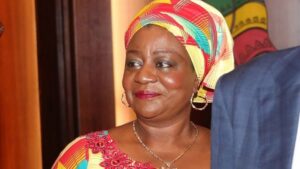
Buhari had in a tweet on Tuesday stated that his government would get “harder” on those hell-bent on destroying the peace of the country. He said those wanting to destroy his government will receive the shock of their lives as his administration will do everything possible to ensure they fail. The president had said the sponsors and orchestrators of insecurity in the country are doing so because they want his administration to fail. “Many of those misbehaving today are too young to be aware of the destruction and loss of lives that occurred during the Nigerian Civil War. Those of us in the fields for 30 months, who went through the war, will treat them in the language they understand,” he had said.
It was reported on Monday that a number of Buhari’s loyalists worked hard to ensure the emergence of their new micro-blogging site, Crowee, and also made sure that the administration took a firm decision to suspend social media giant, Twitter, in Nigeria. We learnt that at the heart of Crowee is a former presidential aspirant, Adamu Garba, but he has other forces behind him, to push the agenda. “The first group of Buhari’s loyalists were those who were bitter by last year’s October EndSARS protests which almost tore the Federal Government apart, because of the publicity and international attention the protesters, mobilizers and sponsors of the protests got using Twitter and other social media platforms effectively to carry out their campaign. So, they use Adamu Garba to file a suit against Twitter,” a top source had revealed to SaharaReporters. “The second group of Buhari’s loyalists who support the emergence of Crowee and actually funded it and worked hard to ensure Twitter sank are those who are bitter by the rising campaign of the Indigenous People of Biafra on Twitter and their international web of collaborators and sponsors. They believed that by banning Twitter, there would be a serious communication gap between Indigenous People of Biafra (IPOB) diaspora and IPOB at home,” another source had stated.

